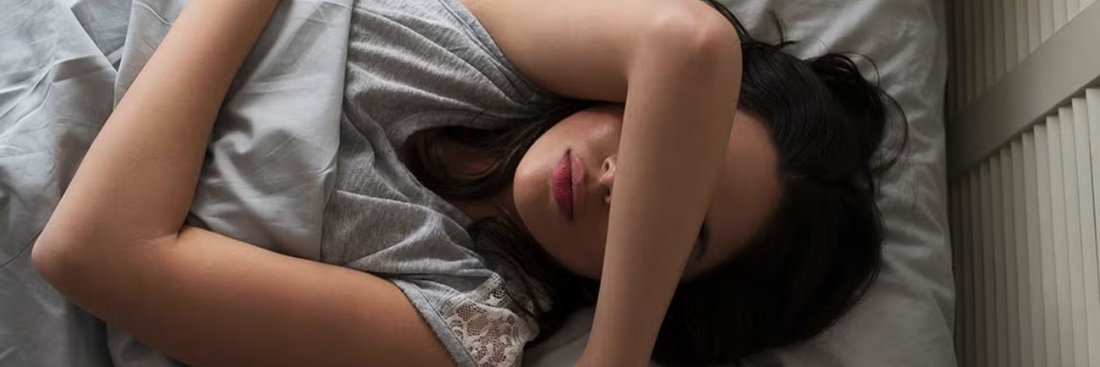It’s a feeling many of us know all too well. A sudden, chilling wave washes over you, regardless of the room’s temperature. Your skin becomes damp and clammy, and a sense of unease sets in. This is a cold sweat, a powerful and often unsettling signal from your body.
Unlike the sweat that beads on your forehead during a workout, this type of perspiration is not designed to cool you down. Instead, it’s a complex physiological reaction to a perceived threat, whether physical or psychological.
Understanding what happens inside your body during these episodes is the first step to managing them. Knowing the science behind it can demystify the experience and empower you to find the right solutions.
The Science Behind That Sudden Chill: Your Body’s Fight-or-Flight Response
At its core, a cold sweat is a product of your body's innate survival mechanism. When your brain perceives danger, stress, or intense pain, it activates the sympathetic nervous system, triggering a cascade of physiological changes designed to prepare you for immediate action.
The Hormonal Rush of Fight-or-Flight
The first step in this reaction is a surge of hormones, primarily adrenaline, that floods your system. This hormonal rush causes your heart to beat faster and strategically diverts blood flow away from the surface of your skin and toward your major muscle groups. This redirection of blood is what causes your skin to feel cold and look pale, even as your internal systems are on high alert.
The Role of Your Eccrine Sweat Glands
Simultaneously, the same adrenaline rush directly stimulates your eccrine sweat glands. These glands are located all over your body, with the highest concentrations on your palms, the soles of your feet, and your forehead. They secrete a watery, odorless fluid directly onto the skin's surface. The result is the signature clammy feeling of a cold sweat: your body is producing sweat even though it is not overheated.
Unpacking the Common Causes of Cold Sweats
Because cold sweats are linked to the fight-or-flight response, their triggers can be incredibly varied. Identifying the source is crucial to understanding why your body is reacting this way.
Psychological Triggers: When Anxiety Goes All Aboard
Emotional and psychological distress are among the most frequent causes of cold sweats. Intense anxiety, a panic attack, a sudden shock, or a deep-seated phobia can convince your brain that you are in immediate danger. This mental state is powerful enough to set off the full physical fight-or-flight response, even when there is no external threat present.
Medical Conditions and Physical Stress
A wide range of medical conditions can also trigger cold sweats as the body responds to internal distress. A sudden drop in blood sugar (hypoglycemia), severe pain from an injury, or a drop in blood pressure can all activate the response. Your body might also produce cold sweats while fighting off a serious infection. Additionally, significant hormonal fluctuations, such as those that cause the night sweats associated with menopause, can be a primary trigger.
Are Cold Sweats Related to Hyperhidrosis?
It is natural to wonder if frequent cold sweats are a sign of hyperhidrosis. While both involve perspiration, they are distinct. Hyperhidrosis is a medical condition characterized by chronic excessive sweating that occurs without the typical triggers. For instance, someone with palmar hyperhidrosis experiences sweaty hands consistently.
A cold sweat, however, is an acute reaction to a specific trigger. That said, the anxiety caused by managing a condition like hyperhidrosis can itself become a trigger for cold sweats, creating a challenging cycle.
Managing and Understanding Your Body’s Signals
The key to managing cold sweats is to address their root cause. If anxiety or stress is the trigger, practicing relaxation techniques like deep breathing, meditation, or mindfulness can help regulate your nervous system.
For persistent psychological distress, speaking with a therapist can provide valuable coping strategies. If you suspect a medical or hormonal issue is at play, consulting a healthcare professional is essential for an accurate diagnosis and treatment plan.
Ultimately, a cold sweat is your body’s way of communicating with you. By listening to these signals and understanding their causes, you can take proactive steps toward feeling more in control. While cold sweats are often tied to specific triggers, managing excessive sweating in your daily life can bring significant relief and confidence.







